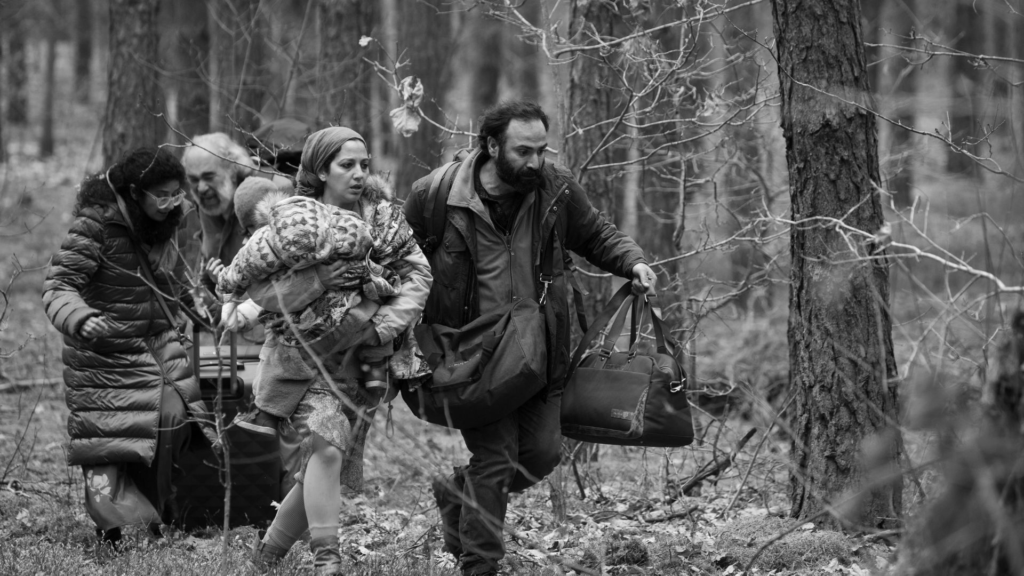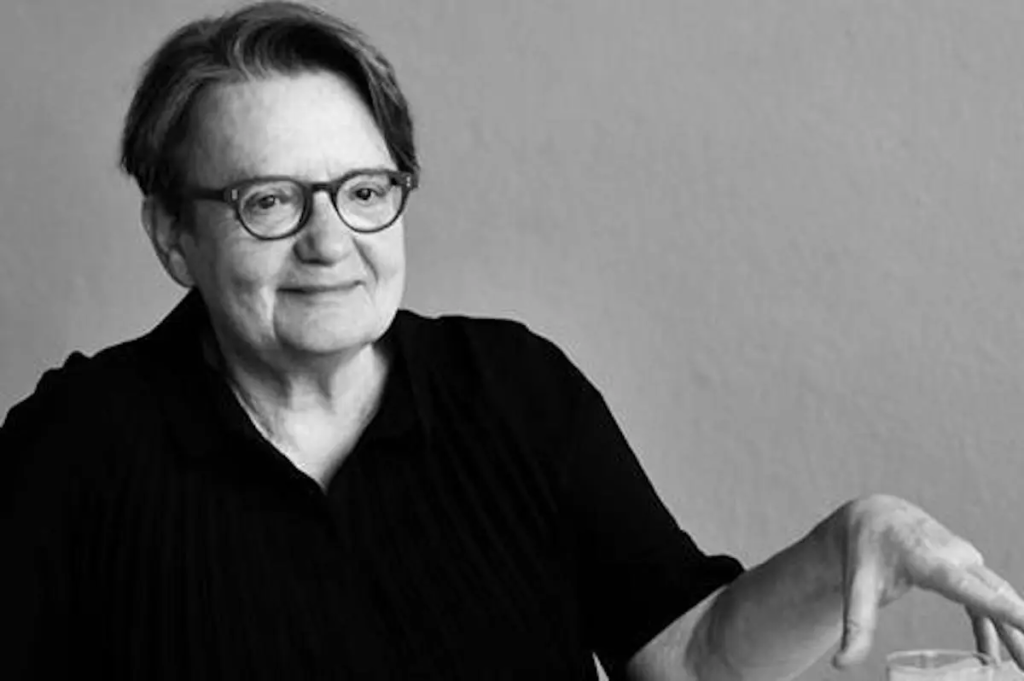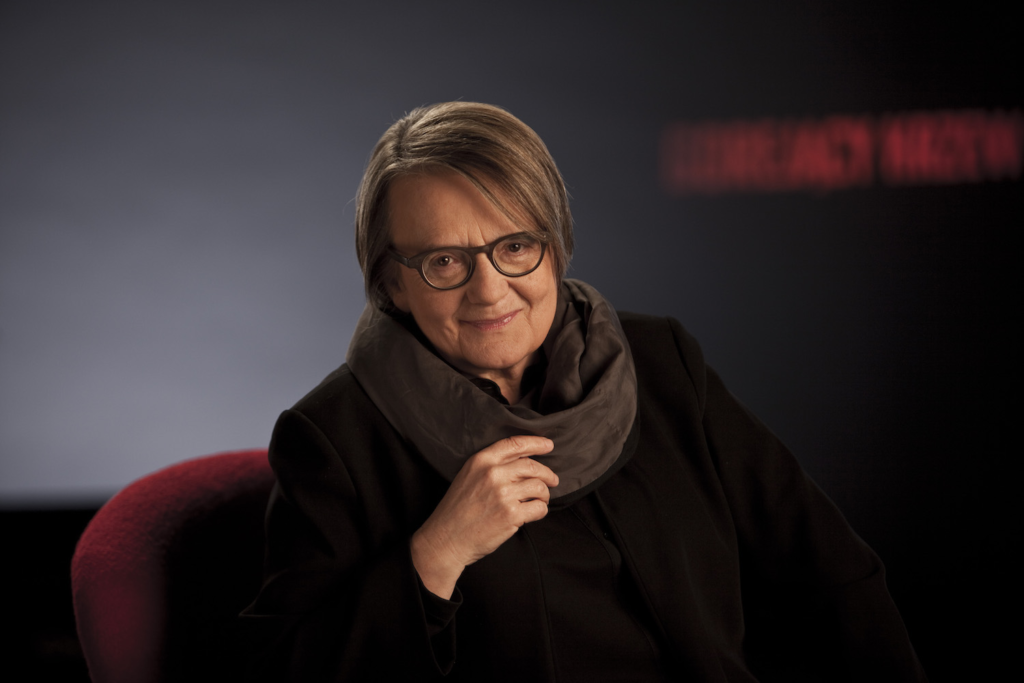Polish filmmaker Agnieszka Holland has made a career out of confronting the biggest taboos within Polish society. Her own personal history, as the daughter of a Holocaust survivor who was deeply embedded within leftist intellectual circles, has informed much of her art and imbued her with a deep feeling for the highly specific social milieus that are brought to the screen in her films. In the past, she has dared to address subjects as complex and wide-ranging as the German invasion of Poland, false imprisonment in the Polish People’s Republic and domestic abuse. Her career has also been marked by struggles against censorship and sweeping criticisms from members of the ruling class.

Her latest film, Green Border (2023), has inspired particularly harsh rebukes from right-wing Polish government officials – who have gone so far as to compare her to a Nazi propagandist. With its focus on the Belarus-European Union border crisis and the treatment of refugees in modern-day Poland, the film pushes back against many of the xenophobic, highly reactionary narratives that have been constructed by the right-wing political establishment in Poland. In spite of all this, the film continues to open in theatres across the world and find an audience.
Zita Short had the opportunity to speak with Ms. Holland about the political and social significance of Green Border.
Zita Short: This film places a heavy emphasis upon the role that bureaucratic procedures can play in complicating the process that refugees are asked to go through in order to legally gain certain rights and privileges. As with many of your other films, it casts a weary eye upon the dominant narratives that surround this practice. What value do you think there is in questioning these narratives?
Agnieszka Holland: I hope that it can open some people’s hearts and minds because the issue of migration is such a huge issue – politically, socially, culturally, economically. It has become one of the most important issues in the modern world. More and more, the people in wealthier parts of the world see refugees as being part of this anonymous wave of aggressive arrival that endangers their peace, security, and comfort. We don’t see the people behind the narratives and reduce them down to aggressors…we come to accept very easily the violence that is used to respond to waves of immigration. Refugees and migrants arrive from war-torn countries, especially in Poland, and it is very easy to use terms like ‘hybrid war’ to discuss immigration. Immigrants are dehumanized and the richness of their humanity is lost. You have the educated and the illiterate, you have Muslims, you have Christians, you have Buddhists, you have atheists, you have children…
You also have young men who are delegated by their entire family or entire village to go to Europe and prepare for the arrival of the rest of the family. You have people who are escaping war, you have people who are escaping persecution, famine. You also have people who simply want a better life and hope that their children can grow up in a secure location. I wanted to give voices and faces to these people and show that this issue is not only about them. It is important for our humanity. It is also for people who have been blessed to be born with the right passport and grow up in a country that offers security and prosperity.

ZS: The film has sparked an intense backlash in Poland, where it has been condemned by several government officials; with some even invoking Nazi propaganda in an attempted smear campaign against the film. What methods do you think Polish artists can use to limit the impacts of this form of censorship?
AH: I think that the main duty of the artist is to go against censorship and not be influenced by the political agendas of the ruling class. You have to see behind the momentary interests of politicians. Societies are so polarized nowadays that when you touch on the subject of immigration, which is used by politicians to further their own agendas, it becomes very controversial. Many people cannot accept it. For many people, it is the opposite. They are grateful to see human faces instead of political propaganda. I am experienced enough to know what I am touching on. It was a deliberate decision to tell the story of people who have to make these important choices. I think we are delegating our free will and our conscience to these parties. We are also encouraged to conform to the general public opinion. I think that artists should be able to create spaces in which they are free and do not have to feel afraid. They should be able to touch subjects and artistic languages which are controversial and not palatable to everybody.
ZS: In the past, you have noted that, somewhat paradoxically, you felt that you were working with a relatively high degree of artistic freedom in Communist Poland. How has your view of this turbulent period in your country’s history evolved and changed over the years?
AH: I hated the Communist regime and I was the happiest person when it fell apart and when democracy arrived. However, democracy is fragile. We can change the victims to the perpetrators if we are not careful. I think that what is necessary is to be aware of oncoming problems. I think an artist needs to be free to do their work. I can vouch for different political options and when I am making my film I have some kind of duty to another side of the creative process.

ZS: Your film also comments upon the fact that the dehumanization of refugees and migrants has unfortunately become normalized. Why do you think it’s important to address such controversial issues in your art?
AH: I made several films about the Second World War and the Holocaust. I spent about ten years researching that period of history and preparing, writing and shooting those films. When I first started working on these projects and speaking to people with first-hand experience as part of my research process, people weren’t talking about these things. I feel very strongly that if it happened, it can happen again. It is not over. We have to be very careful to see the warning signs before we start heading down a dark path.
We are living in a time when fascism is starting to take hold and we know this because they are successfully dehumanizing a vulnerable group of people. They have also inflicted acts of violence upon this group and subjected them to humiliation. There is also the risk of them being killed, imprisoned or pushed out of the country altogether. Sadly, we are at a very bad stage. You can feel it in America, with the situation in Mexico, and you can feel it in Poland. You can also feel it in Tunisia, where people don’t have the money of the European Union and are left to die in the desert. In Ethiopia the refugees are killed in their thousands. My father was a Holocaust survivor and I made films about those crimes because I understand that humanity is capable of the worst atrocities.





